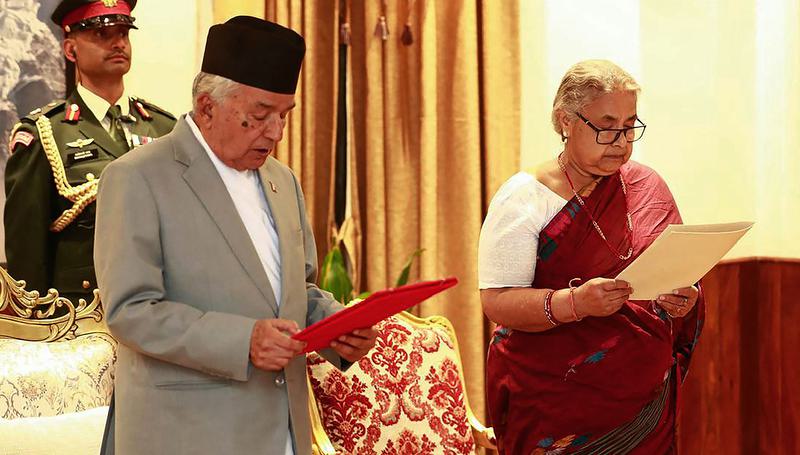Nepal’s First Woman Prime Minister

- 16 Sep 2025
In News:
Nepal has entered a crucial phase of political transition with the appointment of Sushila Karki, former Chief Justice and now the country’s first woman Prime Minister. President Ram Chandra Poudel administered the oath of office after dissolving Parliament and announcing fresh elections for March 5, 2026, marking a historic moment in Nepal’s democratic evolution.
Background: Political Turmoil and Gen Z-Led Movement
The decision came amid widespread Gen Z-led protests against former Prime Minister K.P. Sharma Oli, whose administration was accused of corruption, authoritarianism, and a social media ban that triggered nationwide unrest.
Facing pressure from the streets, the military, and constitutional experts, President Poudel dissolved the House and endorsed Karki’s appointment — a move described as a “remedial measure” during a political crisis. The protests, dominated by youth and digital activists, reflected a broader demand for accountability, transparency, and generational change in Nepal’s governance.
Sushila Karki: A Symbol of Integrity and Democratic Renewal
Aged 73, Sushila Karki is widely regarded as an upright and anti-corruption crusader. She holds a Master’s degree in Political Science from Banaras Hindu University and a Law degree from Tribhuvan University. As Nepal’s first female Chief Justice (2016–17), she was known for her fearless stance against corruption and political interference in the judiciary.
Her appointment as interim Prime Minister is supported by protesters, the Army, and civil society, who view her as a neutral and reformist leader capable of restoring trust in institutions. Her immediate mandate includes:
- Restoring law and order and maintaining peace amid political uncertainty.
- Investigating the September 8 violence and prosecuting those responsible for civilian deaths and attacks on state infrastructure.
- Overseeing the 2026 general elections and ensuring a peaceful, transparent transfer of power.
- Initiating constitutional reforms to strengthen democratic accountability.
Constitutional and Institutional Context
Although some questioned the legality of appointing a non-political figure as Prime Minister following Parliament’s dissolution, constitutional experts assert the decision falls within emergency democratic legitimacy, given the scale of the crisis. The Nepal Army played a stabilizing role throughout the unrest, mediating between the President’s Office and the protesters to ensure an orderly transition.
India–Nepal Relations: Context and Continuity
India welcomed Karki’s appointment, emphasizing stability, peace, and partnership under the ‘Neighbourhood First’ Policy. Nepal’s political stability is vital for India due to geostrategic, cultural, and economic interlinkages.
1. Geopolitical Significance:Nepal shares borders with five Indian states — Sikkim, West Bengal, Bihar, Uttar Pradesh, and Uttarakhand. Situated between India and China, it holds strategic importance in South Asian geopolitics.
2. Defence& Security Cooperation:India and Nepal share deep military ties, including the long-standing tradition of conferring honorary ranks on each other’s Army Chiefs. The Gorkha Regiment further symbolizes this enduring relationship based on mutual respect and trust.
3. Economic and Developmental Partnership:India remains Nepal’s largest trade and investment partner, accounting for over 64% of its trade and 33.5% of total FDI (USD 670 million). Bilateral trade stood at USD 8.85 billion in FY 2022–23, with India importing surplus electricity from Nepal.
India also provides 1,500+ scholarships annually under ITEC and other programs, supporting Nepal’s human resource development.
4. Cultural and People-to-People Ties:The countries share civilizational and religious linkages, exemplified by sites like Pashupatinath Temple (Kathmandu), Janakpur (birthplace of Sita), and Bodh Gaya (India). Over 8 million Nepalis live and work in India, deepening cross-border social integration.
